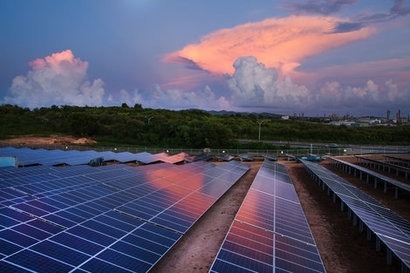
In June 2015, THEnergy launched a platform for “Renewables on Islands” containing a database with renewable energy applications on islands. Hotels and resorts are one of the most important segments, but many have not yet even considered installing solar and wind power. However, the Volkswagen scandal has now underlined the potential of diesel to cause cancer as well as generally being very dirty. The International Agency on Research on Cancer, which belongs to the World Health Organization, has “classified diesel-engine exhaust as carcinogenic to humans in 2012 based on sufficient evidence that exposure is associated with an increased risk for lung cancer”.
Solar and wind can considerably lower health risks for tourists and employees at luxury resorts while also achieving substantial cost savings on electricity. However, some of the nicest holiday resorts and hotels are situated in remote locations and are not connected to the grid. These hotels typically use dirty diesel generators for power generation. Due to the remote location, these generators are often not well maintained and may even be hazardous. Furthermore, in many destinations there are no limits for genset emissions and so exposure to exhaust can represent a severe health risk for employees and tourists. Diesel tankers transporting fuel to resorts also represent a significant danger to the environment with some tankers having sunk at key locations such as the Galapagos Islands, contaminating the precious ecosystems.
With solar and wind power becoming increasingly economical in recent years, renewable energy installation is an attractive alternative to using diesel gensets. With hybrid systems, solar or wind can be backed-up by diesel thereby reducing considerably the need to rely on diesel alone. An additional next step is to use energy storage as battery prices continue to fall, thereby allowing diesel sets to be switched off completely, even at night.
The key barrier to this process is that electricity for solar and wind plants requires upfront investment. However, innovative business models are evolving and changing these paradigms.
“We have seen some signals lately that more and more hotels and resorts are having a look at solar and wind solutions” said Dr Thomas Hillig, founder of energy consultancy THEnergy. “The Volkswagen scandal increases the awareness of tourists toward the risks of diesel. We will see many progressive hotels and resorts that will invest right now in renewable energy. We work with external investors who are willing to make these investments and sell the solar or wind energy to larger hotels and resorts.”
Dr Hillig added that an extra factor is that wind and solar eliminate or reduce considerably the noise level in comparison to diesel gensets and this may represent an additional attraction of renewable energy installation.
THEnergy assists companies in dealing with energy-related challenges, developing energy concepts and encouraging sustainability. The company draws on combined experience from conventional and renewable energy and industry knowledge and is also active in market intelligence and information provision in select fields such as renewable energy.
Image: Solar PV array on the island of St Croix (THEnergy)
For additional information:

